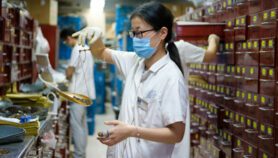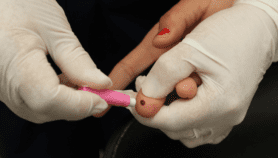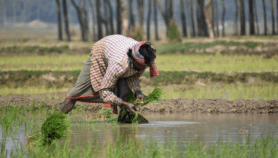By: M. Sreelata
Send to a friend
The details you provide on this page will not be used to send unsolicited email, and will not be sold to a 3rd party. See privacy policy.
[NEW DELHI] Levying a tax on sugar-sweetened beverages (SSBs) could help cut consumption of these drinks and lower the incidence of lifestyle-induced diabetes in India and other low- or middle-income countries, says a new study.
Based on economic and epidemiological modelling, the study says that a 20 per cent tax on sugar-sweetened beverages (SSBs) could cut the incidence of lifestyle-induced or 'type 2' diabetes by 1.6 per cent and obesity prevalence by three per cent.
The projections say such a tax could help avert 11.2 million cases of obesity and 400,000 cases of type 2 diabetes in India between 2014 and 2023. India is projected to have 101.2 million diabetics by 2030, nearly double the current number.
While a tax on SSBs has been proposed in high-income countries, there are no estimates yet of its benefits in a middle-income country such as India with diverse sugar consumption patterns, says Sanjay Basu, assistant professor at the Stanford University School of Medicine, US.
The study was conducted by a team from the Stanford University School of Medicine, the Public Health Foundation of India, New Delhi, London School of Hygiene & Tropical Medicine and others and was published in PLoS Medicine journal last month (January).
It analysed data on consumption of SSBs and price variations from a national sample of over 100,000 Indian households, and calculated how SSB price changes altered an individual's consumption, and their substitution with other beverages.
The results of the study suggest that rural young men would benefit most from the tax deterrent, rather than urban people who were presumed to be the largest consumers of SSBs.
S. V. Subramanian, professor of population, health and geography at Harvard University, however, disagrees. “In general, most, if not all papers, are ‘simulation’ or ‘modelling’-based papers. In other words, we have not observed the claims that are being made in the real world,” Subramanian tells SciDev.Net.
"In the case of India, with less than five per cent of the people obese, (one is) not sure what sort of population impact we will see. In the studies conducted in UK and US the effects are small but there are a lot of fat people — so it might still make sense, but not for India," he says.
Also, says Subramanian, one needs to conduct randomised controlled trials; and also include the effects of processed fruit juices and artificial sweeteners before drawing a conclusion.
Nine per cent of Indians are obese, as compared to 25 per cent in UK and 35.7 per cent in the US, according to official data.
Link to paper in PLoS Medicine














